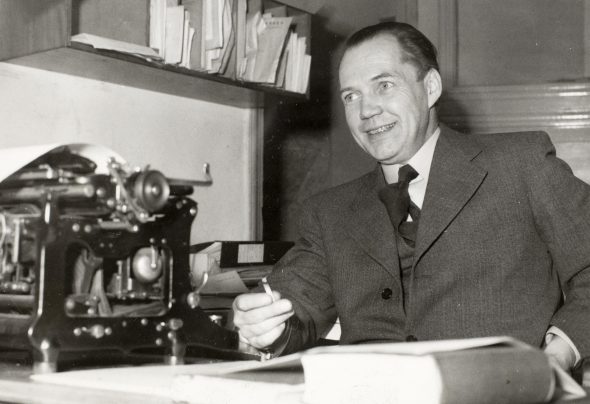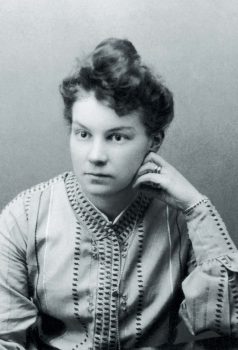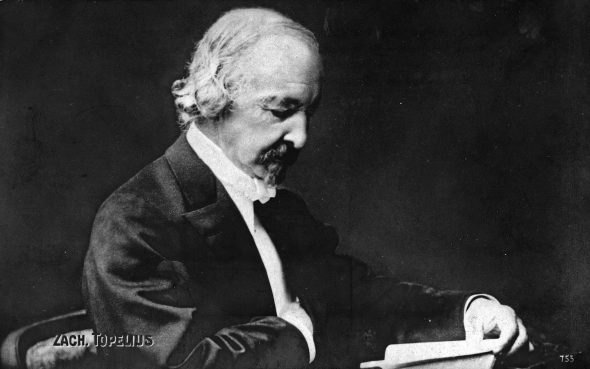Archive for March, 1984
The Sleepwalker
Issue 1/1984 | Archives online, Drama, Fiction
We print here an extract from the radio play Somngångerskan (‘The sleepwalker’, 1978). Walentin Chorell himself said that he felt this genre to be the closest to his heart, and his radio plays are perhaps the element of his work that has contributed most to his reputation in Finland and in the rest of Europe.
As the play begins, we sense night in the old, rambling log house, with a clock ticking in the background; the sound comes closer, intensifies, and then dies away again. The clock strikes three; its works are old and complaining. Long silence.
Then the silence is broken by the loud and happy laughter of Jerine, the sleepwalker. A flock of gulls is heard calling over the beach; there is a gentle summer breeze, and the waves are lapping against the boulders on the shore.
FIRST VOICE (=the mother, frightened)
What’s wrong? What have you wakened me up for?
SECOND VOICE (=the father)
It’s Jerine. She was laughing in her sleep. More…
Mirdja
Issue 1/1984 | Archives online, Fiction, Prose
An extract from the novel Mirdja (1908). Introduction by Marja-Liisa Nevala
Now they were in the city – their minds more alive than usual with wilfulness and daring.
For – quite unable to jettison their shared life – they had at least to get on top it… Had to … Every single person has to battle …
And Mirdja’s head was full of efficacious rules for balance, countless cool and wise thoughts – to meet all conflicts.
Lucidly and coldly she had clarified her present position for herself. She was married. Right. No particular joy in that. But no need for any particular disaster in it either. And if she had thrown herself into dependence through this banal arrangement, the sort that everyone has a little of in this life, she had only herself to blame. She had to be able to live by rising above the trivialities of existence. Besides, she had always known that in the final count it was immaterial whom one was married to. A marriage always had its own profile, its dreary distinguishing marks, but one was not compelled to absorb these dreary sides into one’s own being. How did they do it in France? Every year thousands of marriages occur, without an atom of personal liking entering into the game, and extremely seldom are the marriages unhappy. Why so? Mutual politesse: a little of the art of social intercourse, and the whole problem is solved. In the morning a tiny friendly greeting at the breakfast table: ‘Bonjour ma chère,’ – ‘Bonjour, mon ami’; a courteous kiss on the hand, a pretty smile in response, and everything’s as it should be. Because those people know how to go about it. Marriage – one of society’s many empty regimentations! Only stupid people tried, within narrow limits like these, to find fullness of content or idealize. Stupid, Mirdja had been. Comically destructive in that heavy northern solemnity of hers – refusing to acknowledge any form without content, yet fearful of endowing content with any form except the conventional and time-tested. She had lived with a common-or-garden person’s longing for fullness, and then allowed, exactly like that sort of person, her disappointment and bitterness to flood over all her nearest and dearest. She had lived in indiscretion. She had been paltry and rotten and considered herself a slave … More…
Star-Eye
Issue 1/1984 | Archives online, Children's books, Fiction
A story from Läsning för barn (‘Reading for children’,1884). Introduction by George C. Schoolfield
There was once a little child lying in a snowdrift. Why? Because it had been lost.
It was Christmas Eve. The old Lapp was driving his sledge through the desolate mountains, and the old Lapp woman was following him. The snow sparkled, the Northern Lights were dancing, and the stars were shining brightly in the sky. The old Lapp thought this was a splendid journey and turned round to look for his wife who was alone in her little Lapp sledge, for the reindeer could not pull more than one person at a time. The woman was holding her little child in her arms. It was wrapped in a thick, soft reindeer skin, but it was difficult for the woman to drive a sledge properly with a child in her arms.
When they had reached the top of the mountain and were just starting off downhill, they came across a pack of wolves. It was a big pack, about forty or fifty of them, such as you often see in winter in Lapland when they are on the look-out for a reindeer. Now these wolves had not managed to catch any reindeer; they were howling with hunger and straight away began to pursue the old Lapp and his wife. More…



